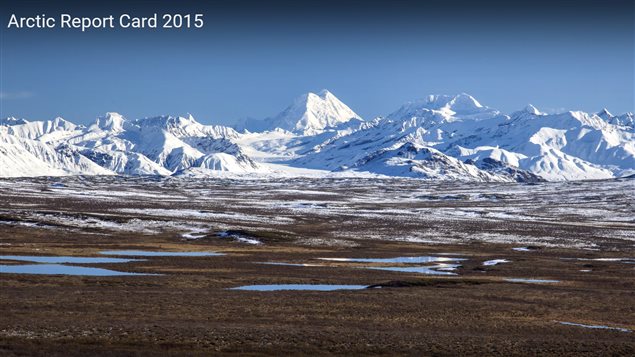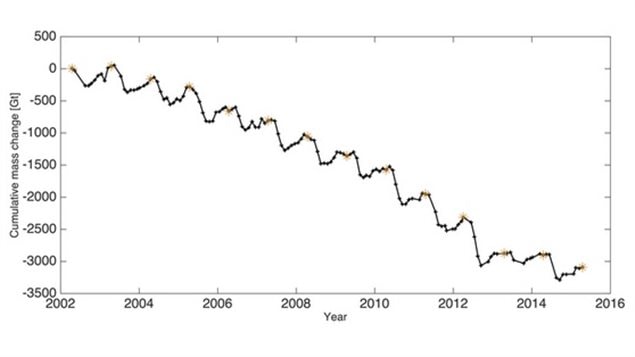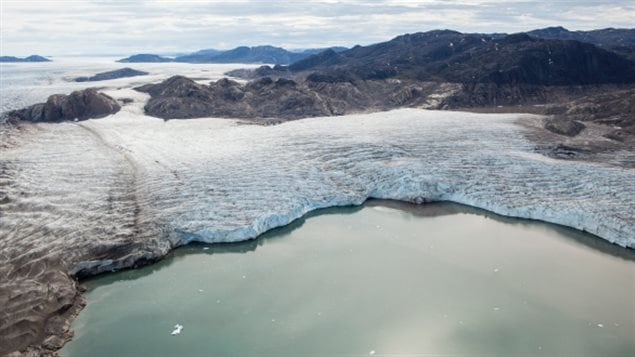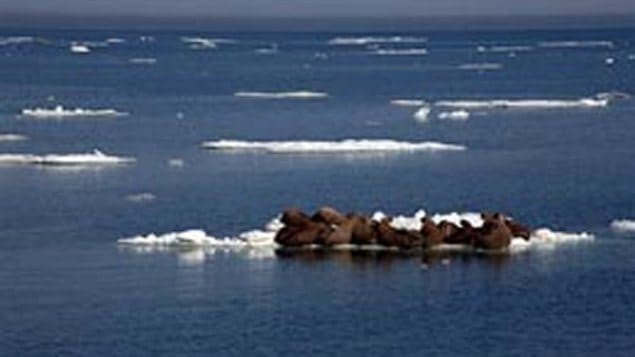The latest assessment of Arctic climate shows yet again more clear indications the Arctic is warming faster than other places on Earth.
The annual Arctic report card has been produced by the National Oceanic and Atmospheric Administration since 2006.
The 12 sections in this 2015 edition is the result of research studies by 72 scientists from 11 countries.
It covers issues like air temperature, the Greenland Ice sheet, sea surface temperature, snow cover and so on.

It shows an ongoing and rapid warming. Air temperature on average during the 2014-15 winter months was 1.3 degrees Celsius above average, the highest sind 1900 and represents an almost 3-degrees Celsius increase since then.
It also notes several regions where temperatures were even higher.
Another study showed greater flow from Arctic rivers, and that the flow peaked earlier in the season than before, indicated faster and greater melting of snow, and of glaciers in mountain regions.

In fact it shows that the Greenland ice sheet was melting at an incredible rate in 2015 with over 50 percent of the surface subject to melting.
RCI-warming affect on Arctic wildlife
The warming is also affecting sea-ice cover which continues its shrinking trend. Not only is the trend diminishing but of the sea-ice is first year ice. Only three percent of the ice is older than four years.

The warming is also having a negative effect on indigenous peoples in the Arctic and on marine and animal life. Warmer water species are moving north displacing native species. There are now algae blooms, and the lack of ice is affecting animals like walrus and seals who need the ice to give birth and raise young.
The recent international climate conference in Paris agreed to try to limit global warming to 2 degrees Celsius, but the scientists point out that this could mean a dramatic 4 degree increase in the Arctic, with equally dramatic changes to the region.
Additional info and sources
NOAA video







For reasons beyond our control, and for an undetermined period of time, our comment section is now closed. However, our social networks remain open to your contributions.